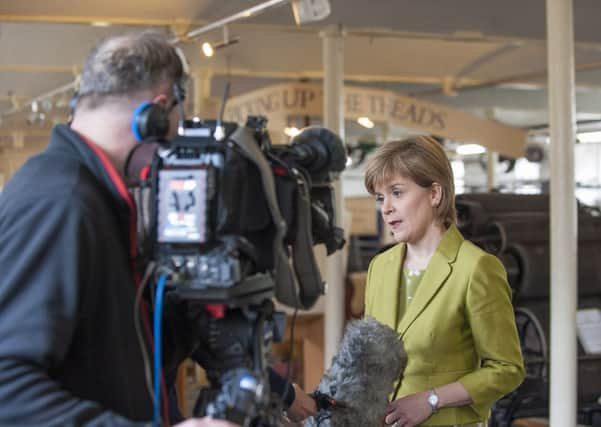Nicola Sturgeon backs down on full fiscal autonomy


First Minister said she wants to keep the Barnett formula which provides 20 per cent more funding for Scots than England and Wales in reaction to a Ukip manifesto pledge to scrap it, while pushing back the proposed introduction of full fiscal autonomy.
She said: “So for as long as Scotland’s funding is still determined by Westminster then the Barnett formula should stay in place. Obviously if Scotland was to become in years ahead fiscally autonomous then we are in a different position but the Barnett formula should stay until that time.”
Advertisement
Hide AdAdvertisement
Hide AdShe also said new tax powers could “take years” but opponents pointed out that the SNP claimed independence could be achieved in 18 months,
A spokesman for Ukip described the Barnett Formula as “the Scottish cringe” but pointed out that like the SNP the party “wants Scotland to be self-funding.”
Labour’s shadow Scottish Secretary Margaret Curran said: “Another day, another financial policy from the SNP. They want rid of the Barnett formula but really they recognise how important it is for Scotland so claim they could keep it until they introduce their damaging full fiscal fantasy.”
Scottish Lib Dem leader Willie Rennie said: “Nicola Sturgeon wants all the benefits of controlling all taxes but none of the risks that go with that responsibility.”
An SNP spokesman said: “We know that transferring devolved powers to Scotland within the UK takes a period of years - the Calman Commission reported in 2009 with the support of the three Westminster parties, the subsequent Scotland Act didn’t pass until 2012, and its provisions will only finally be delivered in 2016, with transitional arrangements in place until 2018 or 2019. More SNP MPs means more power for Scotland. Had Scotland voted Yes last year, the democratic imperative would have been to implement the referendum decision on the timescale set out.”
FOLLOW US
SCOTSMAN TABLET AND MOBILE APPS